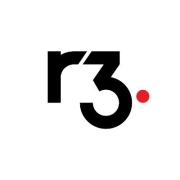Enterprise Blockchains enable secure and efficient transactions across organizations, improving transparency and reducing operational costs. This technology is transforming the way businesses interact, providing a reliable framework for data exchange.
The top 5 Enterprise Blockchain solutions are Corda, Hyperledger Fabric, Casper, AlphaPoint Platform and Ethereum, as ranked by PeerSpot users in December 2025. Corda received the highest rating of 0.0 among the leaders. Hyperledger Fabric is the most popular solution in terms of searches by peers and holds the largest mind share of 36.0%.
Enterprise Blockchains offer shared, tamper-proof ledgers that cater to the needs of complex business ecosystems. By allowing real-time data sharing, these solutions enhance collaboration among stakeholders. Solutions in this domain provide robust security features, ensuring data integrity and privacy while supporting scalable and flexible network configurations.
What are the critical features of Enterprise Blockchains?Enterprise Blockchains have been widely implemented in industries such as finance, supply chain, and healthcare. In finance, they enable quick settlement of transactions and improved audit trails. Supply chain participants benefit from increased visibility, allowing for better inventory management. Healthcare institutions use these solutions for secure patient data handling and compliance with regulations.
Organizations turning to Enterprise Blockchains find that these solutions enhance operational efficiency and data integrity, making them a valuable tool for managing business interactions securely and transparently.
| Product | Market Share (%) |
|---|---|
| Hyperledger Fabric | 36.0% |
| Corda | 23.3% |
| Ethereum | 19.8% |
| Other | 20.900000000000006% |





Enterprise Blockchains provide enhanced data security by utilizing advanced cryptographic techniques to safeguard information. Each transaction is encrypted and linked to previous ones, creating a chain that is incredibly difficult to alter without detection. This ensures the integrity and confidentiality of your business data, significantly reducing the risk of unauthorized access or tampering.
What role do smart contracts play in Enterprise Blockchains?Smart contracts automate and enforce agreements without the need for intermediaries in Enterprise Blockchains. These self-executing contracts ensure that all conditions are met before any actions are taken, resulting in increased efficiency, reduced costs, and lower chances of human error. They provide a reliable solution for transactions and processes in various sectors including finance, supply chain, and insurance.
Why are Enterprise Blockchains considered advantageous for supply chain management?Enterprise Blockchains enhance supply chain management by providing transparency and traceability. They facilitate real-time tracking of products from origin to end-user, ensuring authenticity and quality. This leads to better inventory management, lower operational risks, and a more efficient resolution of disputes. Additionally, the transparency fosters trust among all stakeholders involved in the supply chain.
How do Enterprise Blockchains support compliance and audits?Enterprise Blockchains streamline compliance and audits by offering an immutable and transparent ledger that records all transactions. This creates an auditable trail that simplifies verification and reporting processes. You can ensure adherence to regulatory standards, minimize discrepancies, and mitigate risks associated with non-compliance. The efficiency and accuracy these blockchains provide make audits more efficient and reliable.
What are the scalability challenges facing Enterprise Blockchains?Scalability is a significant challenge for Enterprise Blockchains due to the high volume of transactions they need to handle. Ensuring fast processing times while maintaining security is complex, as larger networks can lead to slower transaction speeds. Solutions such as off-chain processing, sharding, and layer-two technologies are being explored to overcome these limitations, aiming to improve transaction throughput without compromising security or efficiency.